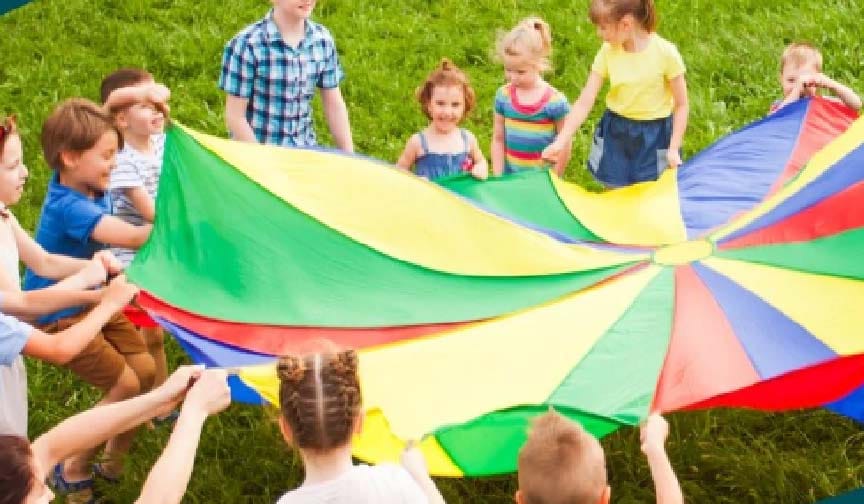
Recess has been a cornerstone of childhood education, providing students a vital break from academic demands. But beyond the playground games and social interactions, recess plays a crucial role in the physical, emotional, and cognitive development of students. Here, we dive into the far-reaching benefits of recess on students’ mood, mental health, and academic success.
The Role of Recess in Child Development
Research shows that recess isn’t just “playtime.” It plays an integral role in childhood development, supporting physical health, mental wellness, and social skills. With recent changes in school policies, many are questioning how these breaks influence students’ ability to focus, process information, and interact with peers.
Key Benefits of Recess
Recess offers a multitude of benefits for students, helping them stay engaged and fostering positive behavior. Among the primary advantages are:
- Physical health improvements, with more opportunities for physical activity
- Mental breaks that reduce stress and improve attention
- Social skill development through unstructured play and interactions
- Improved mood and motivation for learning
Schools that prioritize recess often see enhanced student well-being and improved academic performance, as students are more refreshed and ready to learn after breaks.
Physical Health: Encouraging Activity Through Recess
Physical activity during recess supports children’s overall health, contributing to better physical fitness and healthier lifestyles. The Centers for Disease Control and Prevention (CDC) recommend that children engage in at least 60 minutes of physical activity daily, which includes time during recess.
Promoting Physical Fitness
For many children, recess may be their primary opportunity to engage in physical activities such as running, jumping, or playing sports. Schools can encourage various activities to ensure that students benefit from physical exercise, improving cardiovascular health and muscle strength.
Reducing Childhood Obesity
Regular physical activity helps combat childhood obesity, a growing concern in the United States. Schools that provide ample time for recess contribute to healthier body weight among students. By integrating outdoor activities, schools can promote a lifelong habit of physical exercise.
Cognitive Benefits: Enhancing Focus and Academic Performance
Recess is vital for cognitive development, enhancing students’ ability to focus and process information. According to multiple studies, children perform better academically when they have regular breaks.
Boosting Cognitive Function
Mental breaks during the day give students a chance to refresh and refocus. Studies indicate that short periods of unstructured playtime can improve memory retention and problem-solving skills. When students return to the classroom, they are often better able to absorb new material.
Enhancing Classroom Engagement
Breaks provide students a chance to release energy, leading to better classroom behavior and engagement. Teachers report that students who participate in recess return with renewed energy, which often translates to improved attention and reduced behavioral issues.
Mental Health and Mood: Reducing Stress and Building Resilience
Recess has a significant impact on students’ mental health, reducing stress and improving overall mood. With rising concerns around youth mental health, recess serves as an essential outlet for students to decompress and relieve stress.
Alleviating Anxiety and Stress
Children face numerous stressors, from academic pressure to social challenges. Recess provides a healthy outlet, allowing students to engage in play that reduces anxiety and improves their ability to manage stress. Time outside also exposes students to natural light, which has been linked to mood enhancement.
Supporting Emotional Health
Playing outdoors, engaging with friends, and having a break from structured lessons contribute to emotional well-being. Schools that prioritize recess help students develop emotional resilience, which is essential for handling life’s challenges.
Social Skills: Encouraging Interaction and Empathy
Recess gives children a chance to interact socially, building skills that are crucial for lifelong success. These interactions are invaluable for teaching children empathy, cooperation, and communication skills.
Building Relationships Through Play
Playtime offers an informal environment where children can form friendships, solve conflicts, and cooperate. These interactions foster a sense of community and belonging, helping children develop social confidence and the ability to work in teams.
Developing Conflict-Resolution Skills
During recess, children often face situations where they need to resolve conflicts. These moments provide opportunities for students to practice negotiation and problem-solving, essential skills for adulthood.
How Schools Can Maximize the Benefits of Recess
Recognizing the benefits of recess, schools can take several steps to maximize its positive effects. Here are strategies that educators and policymakers can adopt:
- Ensure sufficient recess time: Schools should aim to provide at least 20-30 minutes of recess daily, following recommendations from organizations like the American Academy of Pediatrics.
- Create a safe and inclusive environment: Schools should offer diverse play areas and equipment that accommodate all children, fostering an inclusive environment for play.
- Encourage diverse activities: Schools can offer various games and sports, encouraging children to participate in activities they enjoy.
- Incorporate recess into the academic schedule: By balancing academic demands with adequate breaks, schools can help students perform better and stay engaged in the classroom.
Frequently Asked Questions (FAQs)
How much recess time is recommended for students?
The American Academy of Pediatrics and CDC recommend that children have at least 20 minutes of recess daily, though more time may be beneficial for enhanced physical and mental health.
Does recess improve academic performance?
Yes. Studies show that students who have regular breaks, including recess, demonstrate better focus, behavior, and academic performance. Recess helps students refresh and return to class ready to learn.
How can recess benefit students with behavioral challenges?
Recess provides a constructive outlet for energy, which can help students with behavioral challenges regulate their emotions and reduce disruptive behavior. Physical activity and play can also improve attention spans.
Why is recess important for social development?
Recess allows children to interact informally, building friendships and social skills. These interactions promote empathy, cooperation, and conflict-resolution abilities, which are valuable for social success.
MORE VISIT, Fashion4

